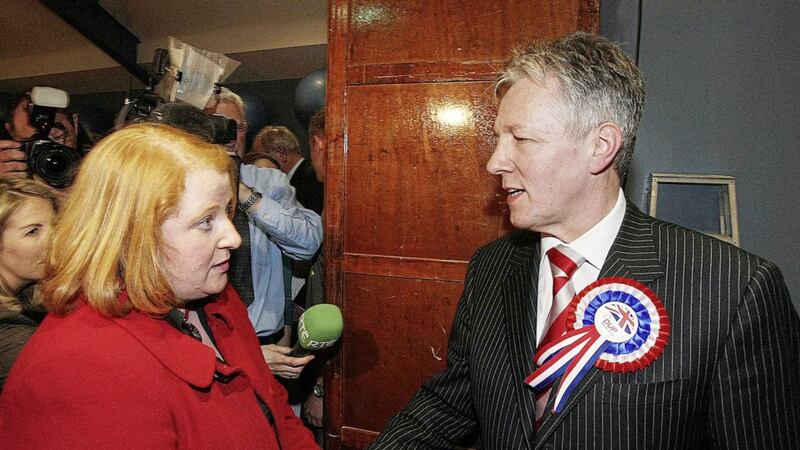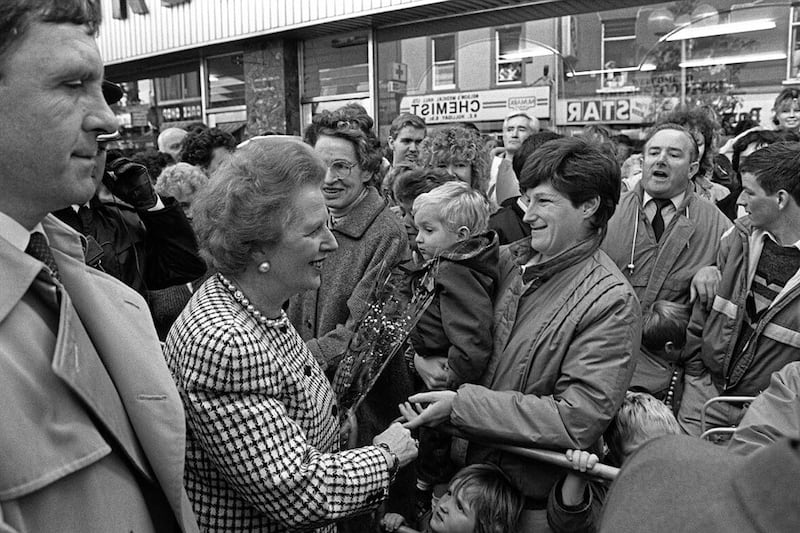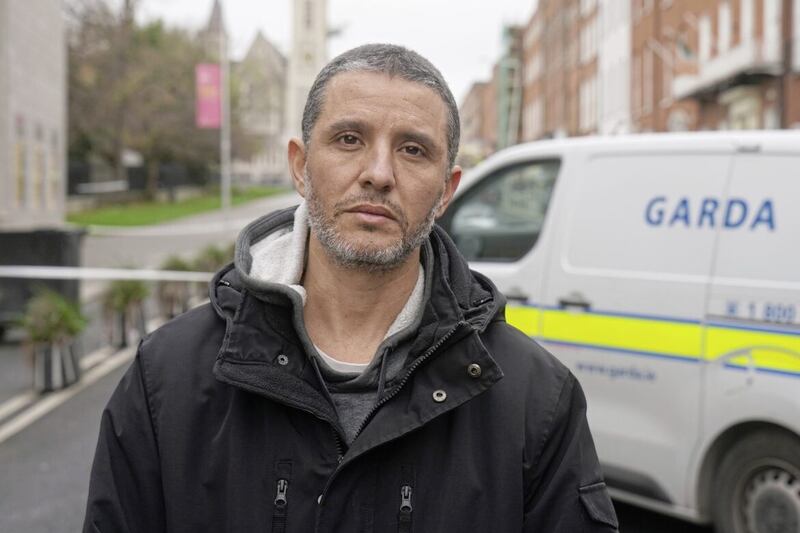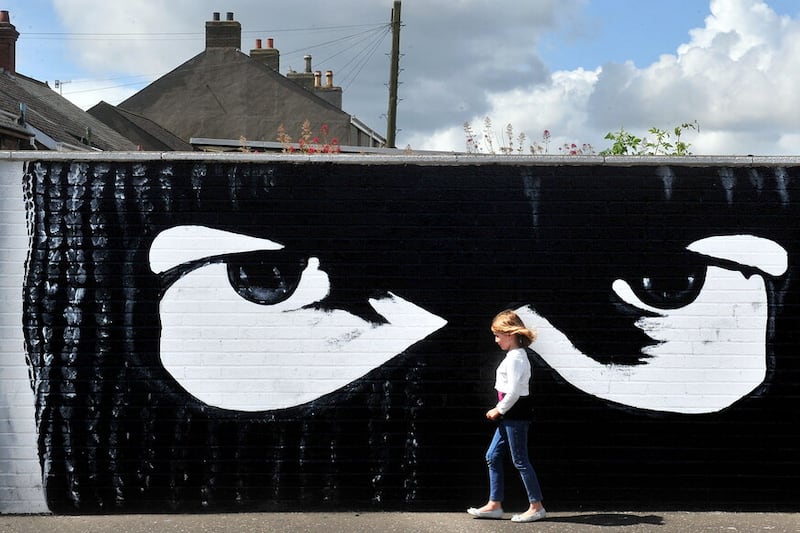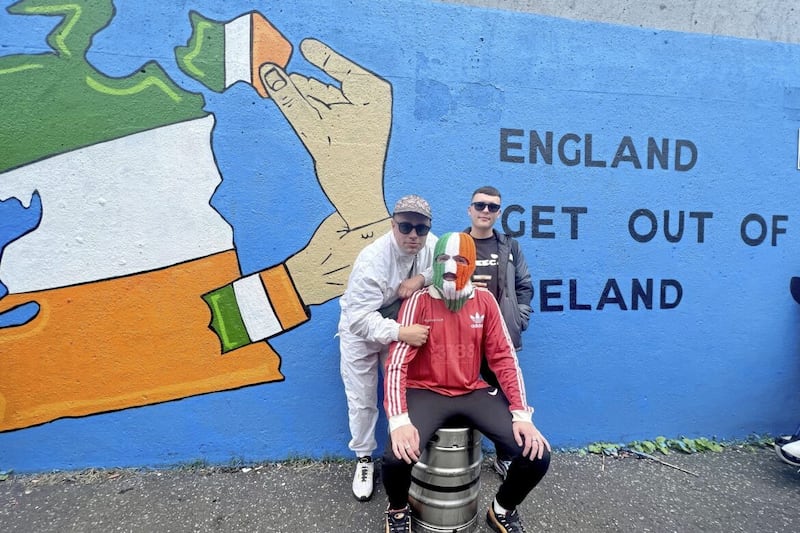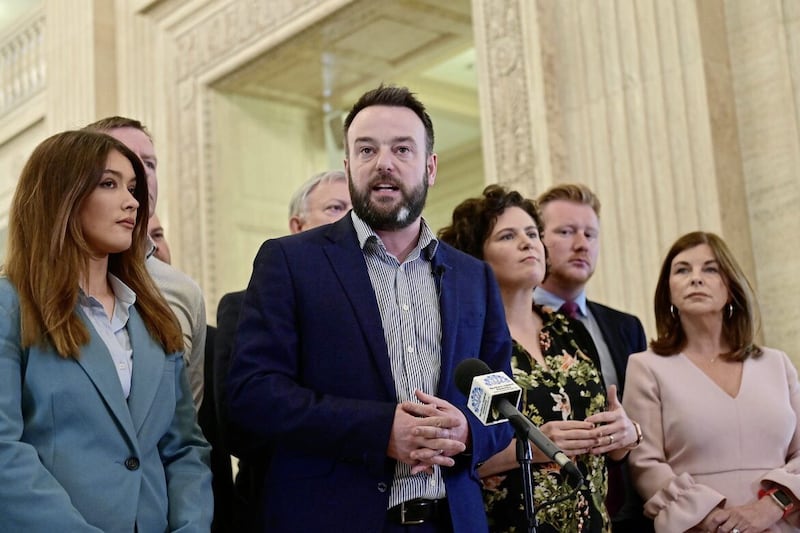THE BBC has a programme at the moment called Pop Goes Northern Ireland which depicts the history of the Troubles through the music of the time. It should be compulsory viewing for anyone born after 1994.
The images are horrific and Belfast was clearly the Aleppo of its day. People of my age grew up through the Troubles.
Our childhood was never normal. The images from the BBC programme clearly show - that Northern Ireland from the late 1960s through to the 1990s was a sick society and in that sense made us all victims.
Watching the Pop Goes Northern Ireland, I couldn't quite believe the images that I have blocked from my mind.
What always stuck out in my mind to this day is the total disregard belligerents whether the IRA, INLA, UDA, UVF or the security forces had for the vast majority of us in Northern Ireland who were innocent civilian non-combatants.
One of my earliest memories is going up a hill towards our estate with the IRA shooting down on an army patrol and the latter returning fire.
In between were women and children coming home from shopping and school. It's not the type of experience that a seven year old should have to witness.
University life was supposed to be a chance to escape fortress Newry but on November 4, 1983, an explosion put paid to that myth.
It killed two police officers studying there and minutes earlier I casually walked under the block where the bomb went off.
Unknown to me then but Nuala O'Loan (later the Police Ombudsman when I served on the Policing Board) was also present and she lost a baby she was carrying.
I remember too well waking up on the morning of November 8, 1987 at an SDLP conference nursing a massive hangover, only to hear the news filter through that the IRA had exploded a bomb during the Remembrance service in Enniskillen.
Eleven people were killed that day through the recklessness of the IRA and three of them were couples.
The words of the very forgiving Gordon Wilson following the murder of his daughter Marie - were amongst the most powerful of all those uttered in the aftermath of atrocities during the Troubles - "but I bear no ill will. I bear no grudge".
Just when I thought the violence was all over with the ceasefires of 1994, it came back to haunt us four years later with the most awful atrocity of the whole Troubles in Omagh.
It's easy to recall that day for different reasons. My wife and I were in Rome. My birthday celebrations were coming up and we started the day at the Basilica di Santa Maria Maggiore but slipped our tour group to go to the Spanish steps and then on to throw a coin into the Trevi Fountain.
As we settled down to escape the sweltering heat in an eatery called Settimio -after a few hours a news item seemed to catch the attention of other diners and as we looked to the screen we saw it was Omagh.
The place looked chaotic. What started off as a beautiful day for us was soon darkened by the images flashing across the TV screen in a small Italian restaurant.
Thirty-one people killed by the Real IRA including a pregnant woman and her unborn twins. That was August 15, 1998.
This all flooded back last week with the timely launch of a new book by Desmond Rea and Hugh Orde - Bear in mind these dead - The Omagh Bomb and Policing.
In an interview Sir Desmond said that the impact of meeting the victims and relatives of the Omagh bomb "had never left him" and that their "anguish is something I will never forget".
Both Rea and Orde were uniquely placed to write this book on the Omagh bombing and how the new policing structures rose to meet with the challenges it posed.
It could have imploded the new policing board but it didn't. It could have led to a loss of confidence in the new PSNI but it didn't.
It could have led to reputational damage to the office of the Policing Ombudsman but it didn't.
The sheer tenacity of the relatives of the Omagh bomb has made up for the deficiencies of not having apprehended the culprits.
Orde and Rea deserve credit for putting on record an alternative viewpoint of one of the last atrocities of the Troubles. Unfortunately, many other stories will remain untold.



